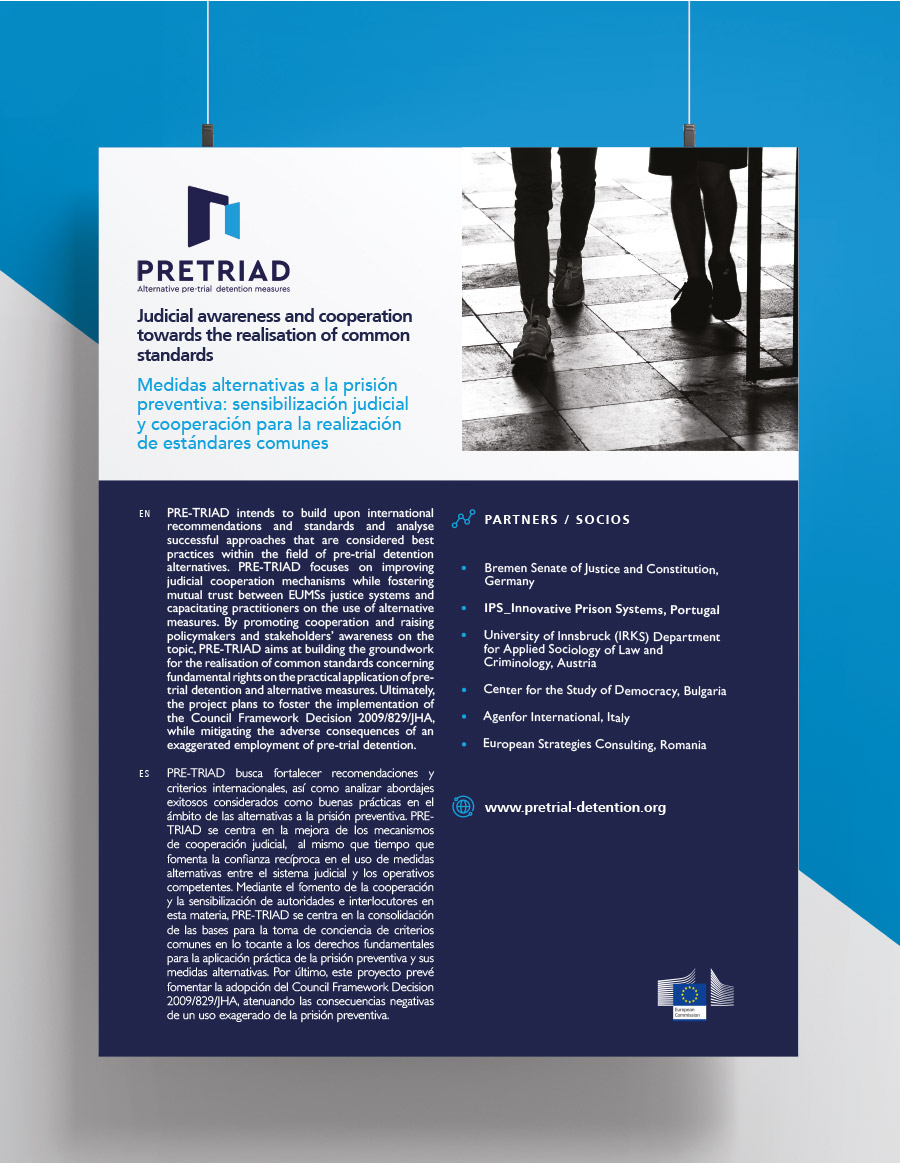FEATURED PROJECT
PRETRIAD
Judicial awareness and cooperation towards the realisation of common standards
PRE-TRIAD intends to build upon international recommendations and standards and analyse successful approaches that are considered best practices within the field of pre-trial detention alternatives
PRE-TRIAD focuses on improving judicial cooperation mechanisms while fostering mutual trust between EUMSs justice systems and capacitating practitioners on the use of alternative measures.
By promoting cooperation and raising policymakers and stakeholders’ awareness on the topic, PRE-TRIAD aims at building the groundwork for the realisation of common standards concerning fundamental rights on the practical application of pre-trial detention and alternative measures.
Ultimately, the project plans to foster the implementation of the Council Framework Decision 2009/829/JHA, while mitigating the adverse consequences of an exaggerated employment of pre-trial detention.
Partners
Recommendations to reduce pretrial detention
The excessive application of pretrial detention negatively impacts detainees and their fundamental rights, families, communities, and even countries’ financial resources. And we shouldn’t neglect the organisational impact on prison systems. The PRE-TRIAD project has developed several recommendations to reduce pretrial detention at the EU and national levels.
European Union level
1
Design a comprehensive strategy to promote mutual trust instruments at the EU level.
2
Revise the text of the Framework Decision 2009/829 to provide a better “power balance” between the issuing State and the Executing State.
3
Promote transnational training sessions on the use of Framework Decision 2009/829.
4
Enhance the role of the European Judicial Network to collect data and disseminate good practices and expertise.
5
Support a systematic collection of statistical data and good practices.
6
Publish handbooks/guidelines on how to use Framework Decision 2009/829.
7
Adopt and promote different templates or forms to ease communication between EU Member States.
National level
1
Encourage the use of alternatives to pretrial detention, especially in cases involving foreign offenders.
7
Provide national or regional training to the front-line practitioners involved directly in the application of the Framework Decision 2009/829.
2
Empower central authorities – where they exist – to provide information and guidance.
8
Provide national or regional training to the front-line practitioners involved directly in the application of the Framework Decision 2009/829.
3
Involve European Judicial Network contact points in providing guidance.
9
Offer language courses to support mutual understanding and encourage communication between competent authorities.
4
Revise the transposition law, if necessary, to be in line with the Framework Decision 2009/829.
10
Inform foreign offenders about the Framework Decision 2009/829 in an accessible language (e.g., an information sheet or brochure).
5
Assess and monitor the extent of the feasibility of using “modern technologies” (e.g. videoconferencing) in the communication process.
11
Supply competent authorities with adequate human resources, interpretation and translation budget, and other material resources essential to apply the Framework Decision 2009/829 properly.
6
Organise awareness-raising campaigns to inform competent authorities, lawyers, clerks, probation officers, and police officers about the Framework Decision 2009/829 possibilities.



